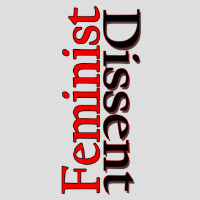Culture/ Religion/ Tradition vs Modern/ Secular/ Foreign
Implications of Binary Framings for Women’s Rights in Nigeria
DOI:
https://doi.org/10.31273/fd.n3.2018.291Abstract
This article examines the binary of culture/ religion/ tradition and modern/ secular/ foreign and its impact on women’s human rights struggles in particular in northern Nigeria. This binary is commonly perpetuated by state and non-state actors, including politicians, community leaders and religious leaders, who weaponise culture, religion and tradition to resist the struggle for gender equality. It highlights how progress around some concerns, such as rape of young girls, has occurred concurrently with attacks on other rights, particularly sexual and reproductive rights including abortion and sex outside marriage, and of those with non-normative sexual orientations, gender identities and gender expressions. This hardening of attitudes and narrowing of what is seen as permissible not only obscures the diversity of how people lived and thought in the past but is also far from the reality of how people live their lives presently. It further reflects the increased influence of religious fundamentalism and conservatism in northern Nigeria.[1]
[1] I used the term religious fundamentalism as distinct from religious conservatism and to signify the project whereby those engaged in it ‘construct ‘tradition’ in a way that is highly selective, at the same time as dogmatically insisting that their reconstructions of text are ‘sacred’ and so unable to be questioned’ (Cowden and Sahgal, 2017, 15), deny ‘the possibility of interpretation and reinterpretation even while its adherents engage in both’ (Bennoune, 2013, 16) and centre the importance of control of women’s bodies and sexuality and rigid gender roles. Religious fundamentalists ‘believe in the imposition of God’s law, something called the Sharia – their version of it rather than others’ – on Muslims everywhere and in the creation of what they deem to be Islamic states or disciplined diasporic communities ruled by these laws,’ denounce secularists, seek to bring politicised religion into all spheres, want to police, judge and change the behaviour, appearance and comportment of others and aim to sharply limit women’s rights, sometimes in the name of protection, respect and difference (Bennoune, 2013, 16). In contrast, while religious conservatism remains problematic, it does not make claims to possessing the only true interpretation and can be ‘protective of certain traditional spaces for women as well as being capable of reform and change’ (Cowden and Sahgal, 2017, 18).
Downloads

Downloads
Published
Issue
Section
License
Authors who publish with this journal agree to the following terms:
- Authors retain copyright and grant the journal right of first publication with the work simultaneously licensed under a Creative Commons Attribution Non-Commercial Share Alike License that allows others to share the work with an acknowledgement of the work's authorship and initial publication in this journal, providing it is not used for commercial purposes and any derivative work is shared with the same license.
- Authors are able to enter into separate, additional contractual arrangements for the non-exclusive distribution of the journal's published version of the work (e.g., post it to an institutional repository or publish it in a book), with an acknowledgement of its initial publication in this journal.
- Authors are permitted and encouraged to post their work online (e.g., in institutional repositories or on their website) prior to and during the submission process, as it can lead to productive exchanges, as well as earlier and greater citation of published work (See The Effect of Open Access).
